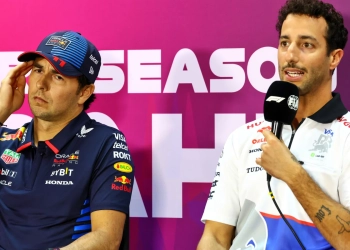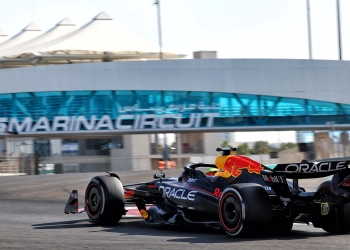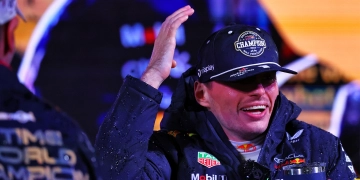Mercedes team boss Toto Wolff believes its torrid Sao Paulo Grand Prix weekend confirmed that developing a new Formula 1 car for 2024 is the “right thing to do”.
Despite its two drivers running as high as third and fifth early on, both Mercedes cars suffered a repeat of the tyre degradation woes that stymied its pace throughout Saturday’s shortened Sprint race encounter.
Lewis Hamilton would eventually plummet to eighth by the chequered flag, while George Russell retired in the closing stages amid concerns over rising engine temperatures.
Mercedes’ uncompetitive showing went against the form guide, with Hamilton having provided the closest challenge to Max Verstappen in Austin and Mexico City.
“Totally baffling. At the same time, unacceptable for all of us,” Wolff said. “We are a proper structure, a solid team, and didn’t look like a solid team today.
“Interestingly that within three consecutive races you finish a strong second in both of them, challenging Max, and then a week later you’re ending up nowhere. I believe this is just not on.”
The Brazil weekend brought a shuddering halt to Mercedes’ late-season momentum, which had been inspired by the introduction of a revised floor in the United States.
Wolff, however, has compared the developments the Brackley camp have put on its troubled W14 car this year to placing “plasters on something that’s not right.”
Having abandoned its ‘zeropod’ concept earlier this year, Wolff insists that Sunday’s race demonstrates Mercedes is right to be pursuing an all-new philosophy for 2024.
Asked how much change is required to be more competitive next season, the Mercedes chief replied: “A lot of change. But this is our route – a fundamentally different car next year. Today proves that is the right thing to do. It confirms it.”

Wolff admits that Mercedes tend to encounter more trouble on Sprint weekends due to the format restricting teams to only one practice hour to optimise their set-ups.
“I think Sprint weekends have generally not been our strength. We are working ourselves out of problems on most weekends,” he conceded.
“Swings are on, but not on from being almost quickest to being eighth. For me personally, the worst weekend in 13 years.”
After Hamilton was disqualified in the United States for excessive plank wear, Wolff confirmed that Mercedes did boost the ride height of its car to avoid a repeat scenario.
Meanwhile, Hamilton attributed the squad’s struggles to adopting a higher-downforce rear wing angle to compensate for its floor not delivering enough performance.
However, Wolff has denied that either factor was to blame for Mercedes’ sudden plight.
“Yeah, we ran the car way too high. And it’s something that you probably carry that on, like you say. But that wasn’t the main reason for an absolute off weekend in terms of performance. There was something very fundamentally wrong, mechanically,” he explained.
“It’s not a rear wing, and it’s not the car being slightly too high because we’re talking a millimetre or two. That’s performance but it’s not the explanation for a total off.”
Aston Martin and Haas elected to withdraw their cars from the starting grid to the pitlane at the USGP in order to conduct further changes outside of parc ferme.
But Wolff asserts that Mercedes’ problems went deeper than any potential set-up changes that could have been made by sacrificing its driver’s qualifying positions.
“We didn’t know fundamentally where we would have changed it,” Wolff commented. “There’s a much bigger issue.
“We thought about that [a pitlane start]. But when thinking about maximising points it was probably right to start like this.”
He added: “I wouldn’t be surprised if we analyse the cars in the next few days and we found out there was a mechanical issue, the way we set them up or I don’t know what it could have been.”









